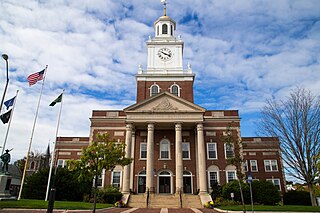
Dover is a city in Strafford County, New Hampshire, United States. The population was 32,741 at the 2020 census, making it the most populous city in the New Hampshire Seacoast region and the 5th most populous city in New Hampshire. It is the county seat of Strafford County, and home to Wentworth-Douglass Hospital, the Woodman Institute Museum, and the Children's Museum of New Hampshire.

Edward Everett was an American politician, Unitarian pastor, educator, diplomat, and orator from Massachusetts. Everett, as a Whig, served as U.S. representative, U.S. senator, the 15th governor of Massachusetts, minister to Great Britain, and United States secretary of state. He also taught at Harvard University and served as its president.

John Parker Hale was an American politician and lawyer from New Hampshire. He served in the United States House of Representatives from 1843 to 1845 and in the United States Senate from 1847 to 1853 and again from 1855 to 1865. He began his Congressional career as a Democrat, but helped establish the anti-slavery Free Soil Party and eventually joined the Republican Party.
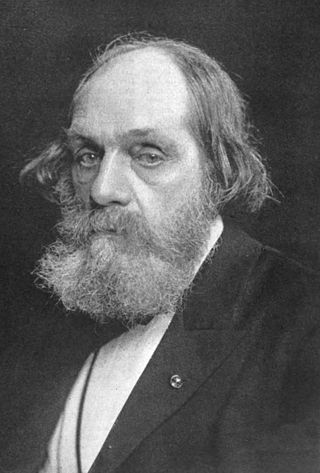
Edward Everett Hale was an American author, historian, and Unitarian minister, best known for his writings such as "The Man Without a Country", published in Atlantic Monthly, in support of the Union during the Civil War. He was the grand-nephew of Nathan Hale, the American spy during the Revolutionary War.

Faneuil Hall is a marketplace and meeting hall located near the waterfront and today's Government Center, in Boston, Massachusetts. Opened in 1742, it was the site of several speeches by Samuel Adams, James Otis, and others encouraging independence from Great Britain. It is now part of Boston National Historical Park and a well-known stop on the Freedom Trail. It is sometimes referred to as "the Cradle of Liberty", though the building and location have ties to slavery.
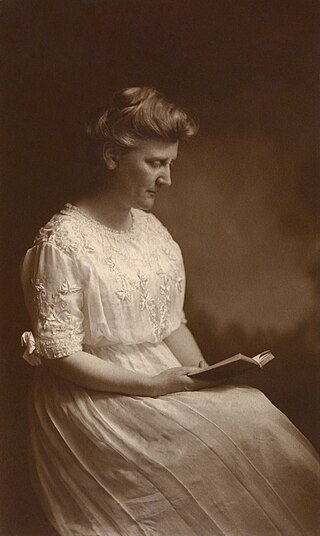
Mary White Ovington was an American suffragist, journalist, and co-founder of the National Association for the Advancement of Colored People (NAACP).

Harriet E. Wilson was an African-American novelist. She was the first African American to publish a novel in North America.

Roger Atkinson Pryor was a Virginian newspaper editor and politician who became known for his fiery oratory in favor of secession; he was elected both to national and Confederate office, and served as a general for the Confederate Army during the American Civil War. In 1865 he moved to New York City to remake his life, and in 1868 brought up his family. He was among a number of influential southerners in the North who became known as "Confederate carpetbaggers."
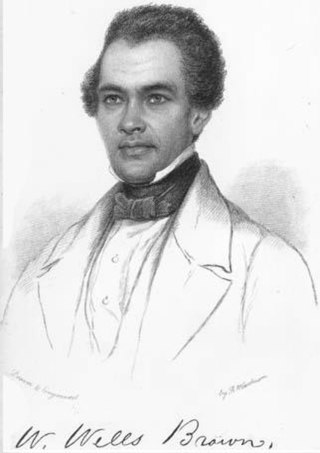
William Wells Brown was an American abolitionist, novelist, playwright, and historian. Born into slavery near Mount Sterling, Kentucky, Brown escaped to Ohio in 1834 at the age of 19. He settled in Boston, Massachusetts, where he worked for abolitionist causes and became a prolific writer. While working for abolition, Brown also supported causes including: temperance, women's suffrage, pacifism, prison reform, and an anti-tobacco movement. His novel Clotel (1853), considered the first novel written by an African American, was published in London, England, where he resided at the time; it was later published in the United States.
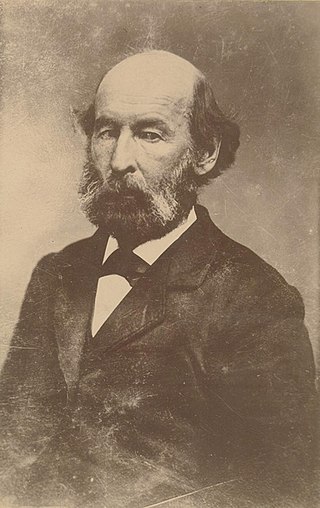
Eli Thayer was a Republican member of the United States House of Representatives from 1857 to 1861. He was born in Mendon, Massachusetts. He graduated from Worcester Academy in 1840, from Brown University in 1845, and in 1848 founded Oread Institute, a school for young women in Worcester, Massachusetts. He is buried at Hope Cemetery, Worcester.
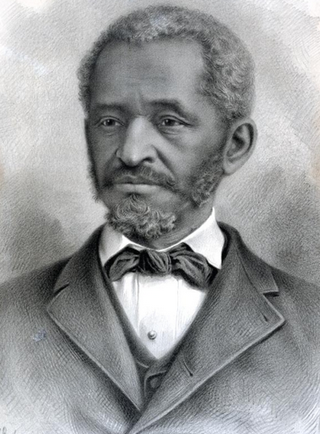
Lewis Hayden escaped slavery in Kentucky with his family and escaped to Canada. He established a school for African Americans before moving to Boston, Massachusetts to aid in the abolition movement. There he became an abolitionist, lecturer, businessman, and politician. Before the American Civil War, he and his wife Harriet Hayden aided numerous fugitive slaves on the Underground Railroad, often sheltering them at their house.

Susan Hale was an American author, traveler and artist. She devoted herself entirely to the art of painting in watercolors which she studied under English, French and German masters. Hale traveled extensively, sketching and visiting the galleries of the world. She was associated with her brother, the Rev. Edward Everett Hale, in the publication of The Family Flight series, which included the several countries she had visited. She also exhibited her pictures of the White Mountains in New Hampshire, of North Carolina scenery and of foreign scenes, in New York City and Boston. She edited Life and Letters of Thomas Gold Appleton (1885), and contributed numerous articles to periodicals.

Elizabeth Buffum Chace was an American activist in the anti-slavery, women's rights, and prison reform movements of the mid-to-late 19th century.

William Cooper Nell was an American abolitionist, journalist, publisher, author, and civil servant of Boston, Massachusetts, who worked for the integration of schools and public facilities in the state. Writing for abolitionist newspapers The Liberator and The North Star, he helped publicize the anti-slavery cause. He published the North Star from 1847 to 18xx, moving temporarily to Rochester, New York.
Lewis Charlton was an orator, school founder, and temperance advocate. He was born a into slavery in the United States in 1814. He died a speaker in the temperance movement in England, and lived a very eventful life inbetween. Crippled at 14 months, he was freed in 1842, and founded a school after the Civil War for the education of 'Negro' children in Westminster, Maryland. What we know of his life comes from biographies published late in his life, census data from the time, and newspaper accounts of his book tour and lectures, until his death in Sheffield in 1888.
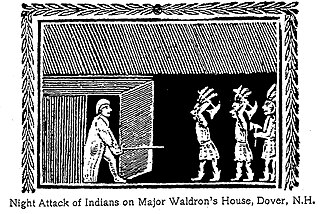
Major Richard Waldron was an English-born merchant, soldier, and government official who rose to prominence in early colonial Dover, New Hampshire. His presence spread to greater New Hampshire and neighboring Massachusetts. He was the second president of the colonial New Hampshire Royal Council after it was first separated from Massachusetts.

Mary Evans Wilson was one of Boston's leading civil rights activists. She was a founding member of the Boston branch of the National Association for the Advancement of Colored People, and the founder of the Women's Service Club.

Ellis Gray Loring was an American attorney, abolitionist, and philanthropist from Boston. He co-founded the New England Anti-Slavery Society, provided legal advice to abolitionists, harbored fugitive slaves in his home, and helped finance the abolitionist newspaper, the Liberator. Loring also mentored Robert Morris, who went on to become one of the first African-American attorneys in the United States.

Nellie E. Brown Mitchell was an American concert singer and music educator, "one of Boston's favorite cantatrices."
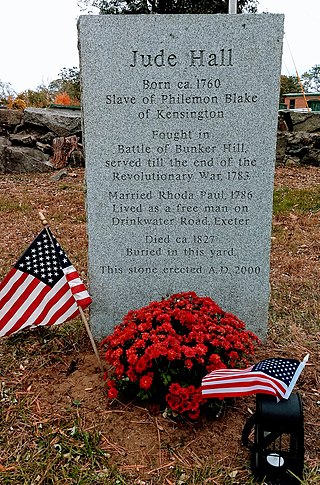
Jude (Judas) Hall was an African-American soldier in the American Revolutionary War. He served from 1775 to 1783, thus earning his freedom from slavery. After the war, he married and settled in Exeter, New Hampshire, where his homestead is still known as Jude's Pond. Three of his children were kidnapped and sold into slavery, and two of his grandsons fought in the American Civil War.



















